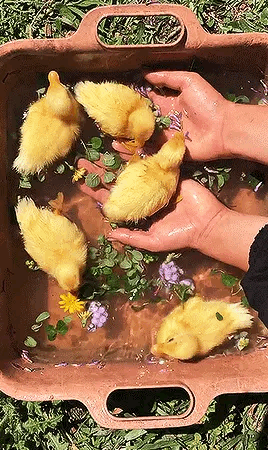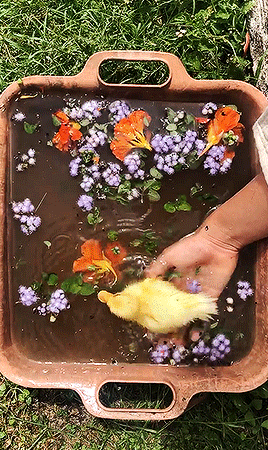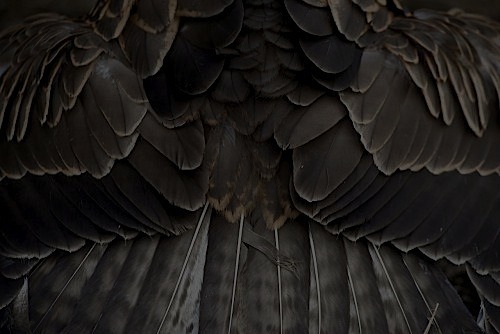| sarai | she/her anthropologist, visual philosopher, eco spirituality, pagan, mom
Don't wanna be here? Send us removal request.
Text
Ritual beginnings: My first Full Moon altar for Arianrhod
Unlike many pagans, I have never worked with the energies of the Moon nor worshipped it. I have never felt “called” to it as an entity. I’ve always been more drawn to the solar cycle, the stars, and the planet bodies in our solar system. I once wrote a short post in a pagan forum about how the Moon has actually felt threatening or ominous to me since childhood, like a stepmother who you wouldn’t…

View On WordPress
#a year and a day#arianrhod#artemis#avalon#celtic pagan#celtic paganism#diana#druid#full moon altar#full moon ritual#goddess of the silver wheel#khonsu#lunar goddess#neo-pagan#neopaganism#selene#star goddess#welsh mythology
11 notes
·
View notes
Text
New life stages, new portals to the Otherworld at Samhain
New life stages, new portals to the Otherworld at Samhain
I should’ve listened to the fairy tales of my childhood. The stories my mother told came with a clear warning: a path can only be walked once. There are certain times in our lives when we happen upon a door to the Otherworld. We are shaken, enlightened, and transformed by the experience. The ripple effect of encountering such magic so intimately reverberates throughout every aspect of our…

View On WordPress
10 notes
·
View notes
Text
What's in a spiritual name? How to choose a new pagan name
What’s in a spiritual name? How to choose a new pagan name
I’ve had a difficult relationship with my name since childhood. In the fourth grade, we were given the opportunity to take on new identities for our Old West social studies unit. I became Victoria. I remember trying on different names in the mirror. While combing my hair I’d repeat them as I gazed into my own eyes (how witchy of me…) and tested names like Vanessa or Serena. By the end of…

View On WordPress
#changing your name paganism#changing your name witchcraft#choosing a pagan name#druid names#how to choose a pagan name#pagan#pagan names#witch name
3 notes
·
View notes
Text
Discover the folk magic of blackberry brambles under the Autumn Wine Moon
Discover the folk magic of blackberry brambles under the Autumn Wine Moon
The full moon of September is in Pisces, my favorite full moon of the year. It’s also known as the wine moon. As the equinox comes and goes, now is the time to preserve the fruit harvest of summer – and wine or juice is a great way to do just that. When better to brew than under a full moon? Today I want to introduce a particularly sacred plant to this full moon and this time of year. Whether…
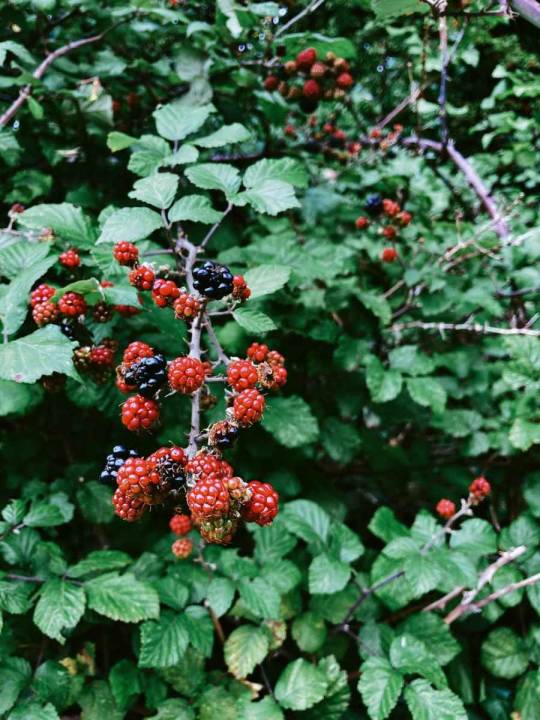
View On WordPress
2 notes
·
View notes
Quote
Is poetry uniquely ineffectual? Who thinks now that sixties culture didn’t help make the sixties happen? Even if we can never specify its means or results, ecopoetry can also help make environmentalism happen. The more immediate hazard for ecopoetry, then, is didacticism. If a contemporary nature poem risks being immoral, an ecopoem, whatever its effects, risks being moralistic. How can an ecopoem usher us into a new environmental imagination without teaching us a tiresome lesson?
Why Ecopoetry? by John Shoptaw
#ecopoetry#eco poetry#environmentalism#environmentalist#environmental art#eco art#creative writing#writers#poets#poetry
3 notes
·
View notes
Text
deep tarot asks🧿
the fool: what journey have you recently started?
the magician: do you feel that you have the right tools and resources in your life to achieve your goals?
the high priestess: do you trust your intuition?
the empress: do you love yourself?
the emperor: do you believe you have control over your life?
the hierophant: what traditions or rituals or mantras have you created for yourself?
the lovers: do you feel alone? are you waiting for perfect harmony in your life?
the chariot: what forces are pulling you in opposite directions?
the hermit: how do you get in touch with your emotions?
strength: in what ways are you strongest?
wheel of fortune: do you feel like you are a victim of fate?
justice: do you believe in karma, or that hard work manifests as success?
the hanged man: are you truly open-minded?
death: have you had to bury another version of yourself? what came out of it?
temperance: have you found a comfortable balance in your life?
the devil: do you have everything you want? why do you want it?
the tower: what was the last reason you really cried?
the star: are you an optimist? why or why not?
the moon: what are you hiding from yourself or from others?
the sun: what makes you happiest?
judgment: are you sure that you want your life to head in the direction that it is?
the world: are you satisfied? do you love life or do you just tolerate it?
inspired by @nightmarevirgo’s super cute tarot questions
7K notes
·
View notes
Quote
The way we see the world shapes the way we treat it. If a mountain is a deity, not a pile of ore; if a river is one of the veins of the land, not potential irrigation water; if a forest is a sacred grove, not timber; if other species are our biological kin, not resources; or if the planet is our mother, not an opportunity - then we will treat each one with greater respect. That is the challenge, to look at the world from a different perspective.
David Suzuki (via davejwatson)
1K notes
·
View notes
Text
Water Mother
There are no boundaries here. The tide rises to permeate these caves and I welcome the drowning, like mountain honey on a starved tongue.
The salted ocean is a cold and wet woman, awake to the billions of stars in her waters. She: an expanse, cosmic and unknowable, charged with the holding of things, people, memory. I breathe her in like a ship resigned to wreckage and revealed treasure.
There are no boundaries with Her. When the cave is full I can see through time, like the cuckoo who eats by the sun but calls out in the night, everything is attainable.
Below, I see the distant glow of Atlantis. High above, I see Her hellbent on erosion reaching for and crashing against cliffs. And there, on the rocks – the lamb of God- dess
Brigantia, Laima, Hera – No. My own Mother; divine and dressed, as she always is, in black and white; planting flowers, as she always is, in her garden by the water.
There are no boundaries here. The tide rises to permeate these caves and I welcome my drowning with offerings of honeysuckle and violets.
I don’t believe in death or in poison.
There is Her, the tide. Cosmic mother, my own mother, memory.
#poem#poetry#poems#pagan#goddess#water goddess#water witch#brigantia#laima#laume#hera#atlantis#cosmic mother#ocean witch#ocean goddess#goddess worship
17 notes
·
View notes
Text
Long before food was a commodity bought and sold for profit, no act of food production, from harvesting, growing, preparing, preserving, storing, cooking, baking, was left unblessed by women’s prayers, rituals and devotions. And for most of human history nearly every domestic activity from making pots to planting seeds to baking bread was ritual “hearthcraft”. And to put it very simply, women’s food magic had one central purpose, to honour and nourish the great mother of all – who in turn nourished them.
The loss of reverence for the earth desacralized our food. And for women it meant being severed from the rituals which brought us together, from which we drew nourishment, meaning and spiritual sustenance. Women no longer gather communally to harvest with prayer and song, but shop harried and alone in corporate superstores, and the kitchen is a place where we consume the processed and fast foods that suit our busy lifestyles.
So I can’t help but wonder if this has anything to do with why, from perpetual dieting to eating disorders, to an obsession with “watching what we eat”, modern women have such a complicated relationship with food?
In their book From Betty Crocker to Feminist Food Studies: Critical Perspectives on Women and Food, Arlene Avakian and Barbara Haber write women today are suffering from an internal conflict, in which “our hidden hungers”, “the sensual pleasures of food and cooking are all too often obscured by the increasing demands of careers, families, battles over body image, and the desire for a life outside the “traditional” domain of the kitchen.”
And they point out that feminism has been of little help sorting it all out. Women’s history scholars are more interested “in setting straight the public record on women’s achievements”. And feminist scholarship on food has largely focused on “women’s food pathologies, such as anorexia, bulimia, and other eating disorders” and ignored cooking “as if it were merely a marker of patriarchal oppression and, therefore, not worthy of attention.”
But that’s why I find women’s earliest food history so fascinating. Author and scholar Christine Downing eloquently describes how women role in food production was considered sacred. Women were linked with food not only because they cultivated and prepared it, but also because their own bodies, like the great goddess, were a source of food and life.
And despite our long association with food, cooking and the kitchen as disempowering drudgery, this wasn’t always the case. Growing evidence in the fields of anthropology suggests that women’s early place by the hearth may have had nothing to do with the centuries of domestic oppression that followed. Because long before women ate last at the table (and maintained their trim figures) long before cooking was part of an invisible unpaid economy, women had control over the crops they harvested, cultivated, cooked and consumed.
Turns out a woman’s place in the kitchen was likely once at the centre of a very different economy – one that granted them autonomy and spiritual authority. As Eleanor Leacock writes in Women’s Status in Egalitarian Society, women in hunter gatherer cultures lived in societies where “issues of status are irrelevant because both women and men produce goods and services for their own use…and hence control their own lives directly.” These early food economies are often referred to as “gift-giving” meaning no one had to “pay” to eat. Because long before food became a commodity it was a sacred gift of the earth, who as a mother fed all her children equally, no matter their class, status, or gender. And she gave freely to all of her forests, fields, rivers and oceans.
It was the shift to ownership of crop and land (usually by an elite class of landholders and the Church) that spelled the end of the gift economy. And according to feminist economist Silvia Federici, what this meant for women was that they no longer had access to land, and control over the crops they cultivated. Now “their work and their sexual and reproductive powers were placed under the control of the State and transformed into economic resources”. Mostly unpaid.
So here’s the big question. What if cooking in these early economies was far from drudge work assigned to the lesser sex? What if it was originally a source of women’s empowerment? What if it provided fellowship, and an avenue of creative, artistic and spiritual expression? What if eating and feasting were celebratory occasions to honour the life-sustaining gifts of the earth, opportunities for women to nourish and pleasure themselves?
Today women struggle with perpetual diets, bread is a “forbidden food” and we do our best not to “lose control” during times of holiday feasting. Oprah may have bought Weight Watchers to help women be their “best selves”, but maybe we’re hungering for something we can no longer even name? The way I see it, the “herstory” of food isn’t the old well-worn tale of women being oppressed by their place in the kitchen. Quite the opposite. It’s about reclaiming our age-old power as caretakers and nurturers of the earth, of each other – not to mention ourselves.
THE MAGICAL HERSTORY OF FOOD
By Danielle Prohom Olson
463 notes
·
View notes
Photo
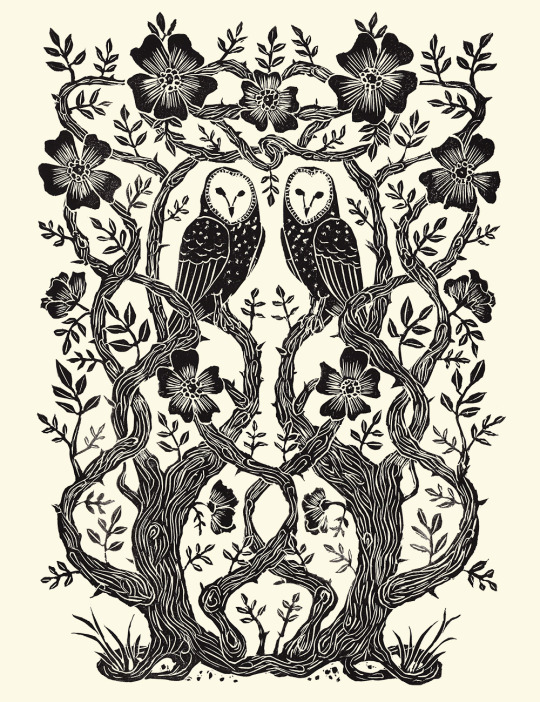
Rose Owls
Block print, 2019
by Kelly Louise Judd
10K notes
·
View notes
Photo

Hayv Kahraman - Wattania Class, 2015 (detail)
Iraqi-American, b. 1981
Oil on linen
824 notes
·
View notes
Photo

There is so much wisdom to be found when aligning ourselves with the river spirit. She does not force herself through, yet does not hold back her swell. A mystery we’ve built our civilizations upon.
3 notes
·
View notes
Quote
There are nights when the wolves are silent and only the moon howls.
George Carlin (via chai-tea-phone-tree)
4K notes
·
View notes

